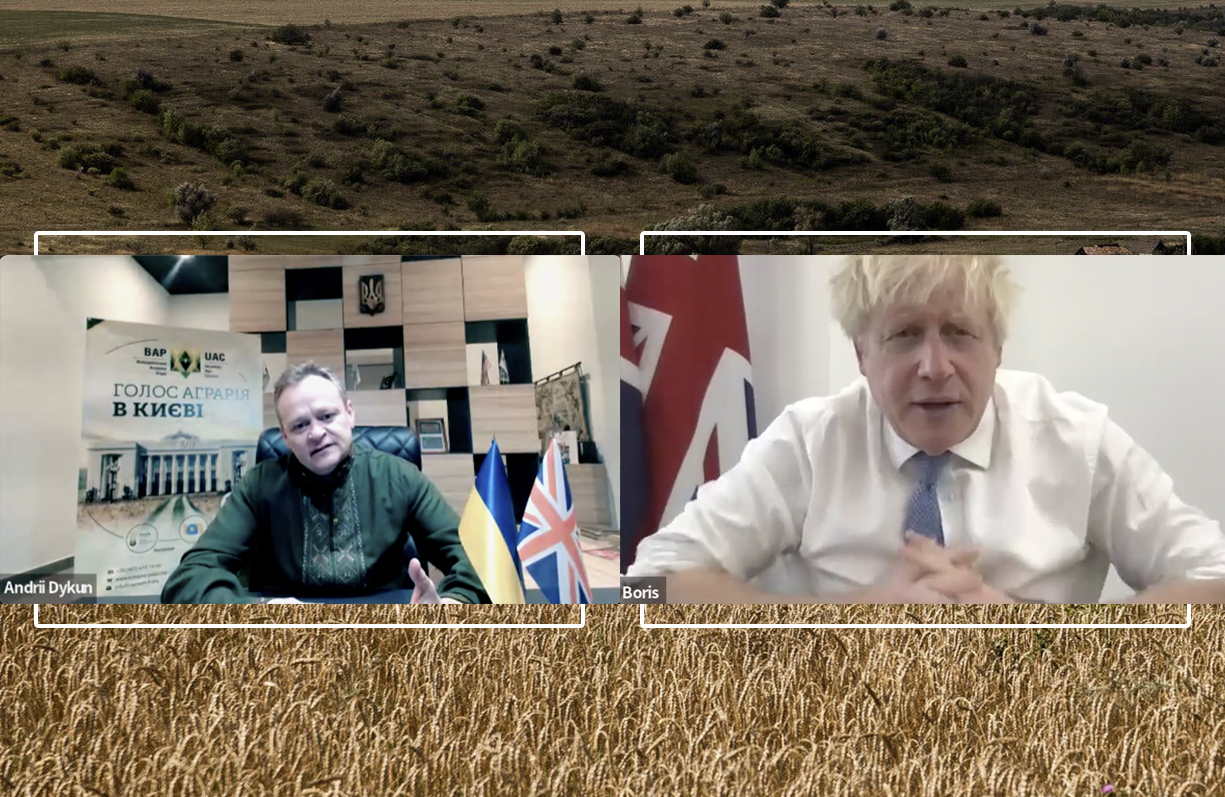
The head of the Ukrainian Agri Council (UAC) and Charity Fund SAVE UA Andriy Dykun and the director of the Ukrainian National Agrarian Forum Mariia Didukh met with the former Prime Minister of the United Kingdom Boris Johnson. The meeting was initiated and organized by the UAC team.
The parties discussed the current situation in the Ukrainian agricultural sector, the deepening global food crisis and possible options for cooperation, in particular, the creation of an international fund to support Ukrainian farmers.
Boris Johnson noted: "We support Ukrainians and want to help, first of all, with economic recovery and reconstruction of Ukraine. I believe that Ukraine is an incredible country with an amazing economy. We have made a lot of efforts to get the Grain Agreement in place so that Ukrainian grain exports from Odesa could continue, and now we are looking for opportunities to further promote the development of the Ukrainian agricultural sector."
The head of the UAC Andrii Dykun expressed gratitude to Boris Johnson and initiated the discussion about creation of an international fund to help Ukrainian farmers.
"On behalf of the Ukrainian Agri Council I want to thank you for your great work, thanks to your efforts many leaders of other countries began to support Ukraine. Because of the war, the situation in the agricultural sector is catastrophic: farms are destroyed, machinery is destroyed, animals are killed, fields are mined, and in the spring, agricultural producers who have lost everything, will not be able to go to the fields. Today it is necessary to launch a global fund for the restoration of the Ukrainian agricultural sector, which will raise funds to help specific farmers who have lost their farms.
Regarding trust. We, as the Ukrainian Agri Council, have a big plus: we are inside the country, we are trusted by farmers, we have more than 1000 members to lead the restoration process globally in cooperation with international partners," said the head of the UAC.
The parties agreed that the food issue concerns not only Ukraine, but the whole world.
"If we do not cultivate our land, the world will produce less food. In the long term, we need to restart agricultural enterprises in Kharkiv, Kherson, Mykolaiv regions and in those regions that will be de-occupied, and this requires billions of dollars. The UK and the USA are helping Ukraine, but at the moment we have a war, many internally displaced people, power cuts, etc. So, the problem of agricultural production is not number one today, but it will be so in the future, if we do not act now," said Andriy Dykun.
Potential assistance to the Ukrainian agricultural sector may resemble a “land lease”.
"The world needs Ukraine to produce more food. We need more calories in Africa. This is a real problem. I will consider different possibilities, but I believe that it should be a project created in cooperation with other governments. We will need a fund to support Ukrainian agriculture in difficult times, but with the understanding that eventually these funds will be returned. That is a kind of “land lease” that the Americans made during the war to help the UK," Boris Johnson suggested.
Assistance to Ukrainian agrarians in the form of agricultural machinery, generators, restoration of cattle, demining of fields is also appropriate.
"Dairy farmers, for example, need cows. The equipment was destroyed - farmers need tractors, harvesters. I am not talking about the money itself, farmers also need specific things, and the agricultural sector is hampered by the problem of demining. In Ukraine, more than 300,000 hectares of land are mined, their restoration will take many years, so we need to find money to hire, for example, British companies that are professionals in demining, and ask them to demine agricultural land as soon as possible. Ukrainian farmers also need power generators, and the UK is one of the countries where they are produced," Andrii Dykun added.
The meeting resulted in an agreement that the Ukrainian side will provide a detailed report on the state and priority needs of the agricultural sector and negotiations will be continued.